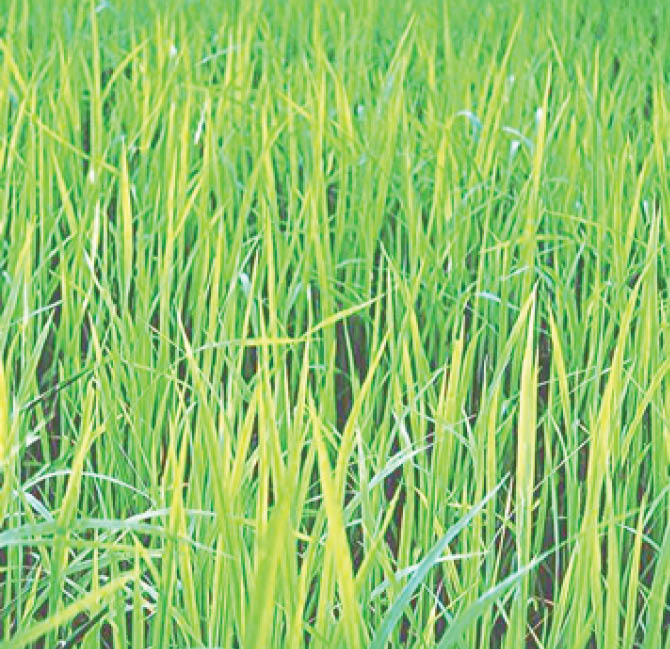Stakeholders explore ways pasture production can be utilised for commercial gain
By Daniel Dada Stakeholders in pasture development met in Abuja and brainstormed on production, the challenges affecting the sector and how pasture production for commercial gains and exportation could be achieved in the country. Olonimoyo Franklin, Latifah A. Lawal, Tijani Goni Muhammad, Ibrahim U. Wali, Aliyu M. Shettima and Sabo A. Abubakar, who led […]

Grasses grown for pasture
By Daniel Dada
Stakeholders in pasture development met in Abuja and brainstormed on production, the challenges affecting the sector and how pasture production for commercial gains and exportation could be achieved in the country.
Olonimoyo Franklin, Latifah A. Lawal, Tijani Goni Muhammad, Ibrahim U. Wali, Aliyu M. Shettima and Sabo A. Abubakar, who led discussion on the issues, said that most projects not being properly executed in some of the states as a result of lack of involvement of professionals in pasture value chain had been a major challenge.
Steps to tackle challenges
The group, in their submission, recognises the need to provide a complete production chain from seed supply to seed production, processing and marketing as this will convince farmers to adopt pasture production, and if the monetary value of pasture outweighs that of food crops, farmers will generally adopt pasture production.
They said more emphasis should be made on value chain and the marketing component of the pasture feed sustainability drive so that the farmer/pastoralist may easily buy into the programme.
The group also advocates the creation of pasture collection centres and ease of exportation and need for seed improvement to increase productivity potentials of pasture species and intense sensitisation of the NLTP programme, especially on pasture production and on community commitment in managing them.
Government should intervene in the production break-even of the private sector and encourage private-public partnership (PPP) with pasture producers.
There is the need to improve marketing system for pasture seeds, and as a matter of urgency, grasses are needed in large quantities for export.
Local content should be encouraged in producing sustainable pasture production, and beyond income obtainable from Napiar grass, its cutting is another source of income.
The federal government should strengthen its coordination with states in pasture seed multiplication programme to enhance pasture production
There is also the need for machineries for pasture production and processing: provision of hay balers, forage harvesters in small, medium and large-scale machines.
More of pasture stakeholders’ engagement to enable exchange of ideas and innovations and need for machineries for pasture production and processing: provision of hay balers, forage harvesters in small, medium and large-scale machines.
Capacity building is essential for farmers on pasture production, and there is the need to structure finance architecture on how farmers can feed their animals and way of paying back without necessarily using cash.
Monitoring and evaluation of pasture projects should be strengthened to include personnel with relevant field experience, non-governmental organisations, farmers’ cooperatives, civil societies and other stakeholders.
They also called on the federal government to improve the level of coordination and collaboration with state and local governments, adding that other technical expertise should form part of the requirements for award of contracts for NLTP as standardisation and certification of producers, processors and marketers are implemented
Plans for pasture development centres
It is important that certified seeds be provided for pasture producers and cooperatives, as well as capacity enhancement of commercial pasture producers and out-growers for improved productivity, sensitising and encouraging local farmers to see pasture venture as a viable business and integrate modular irrigation systems to ensure year-round production of pasture
Tractor and implements specific for commercial pasture production are needed, as well as pasture processing and pelleting machineries to support small scale processors.
They also appealed to the federal government to encourage pasture production in Fadama areas, as well as involving civil society organisations in advocacies and community mobilisation.
